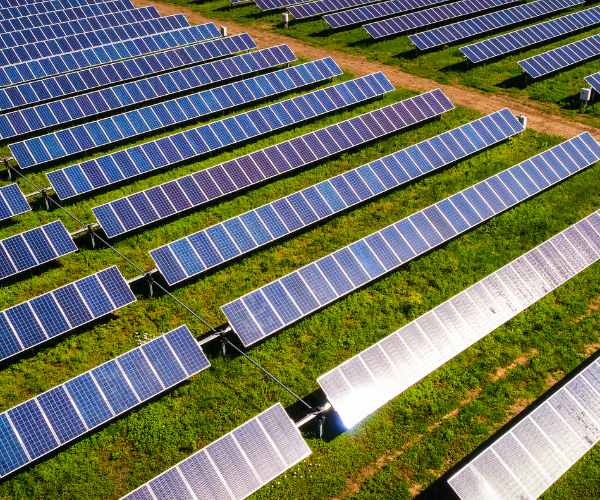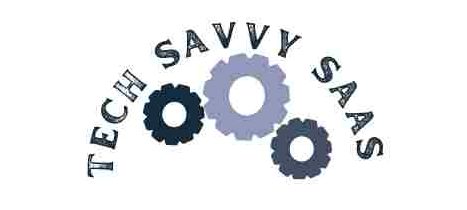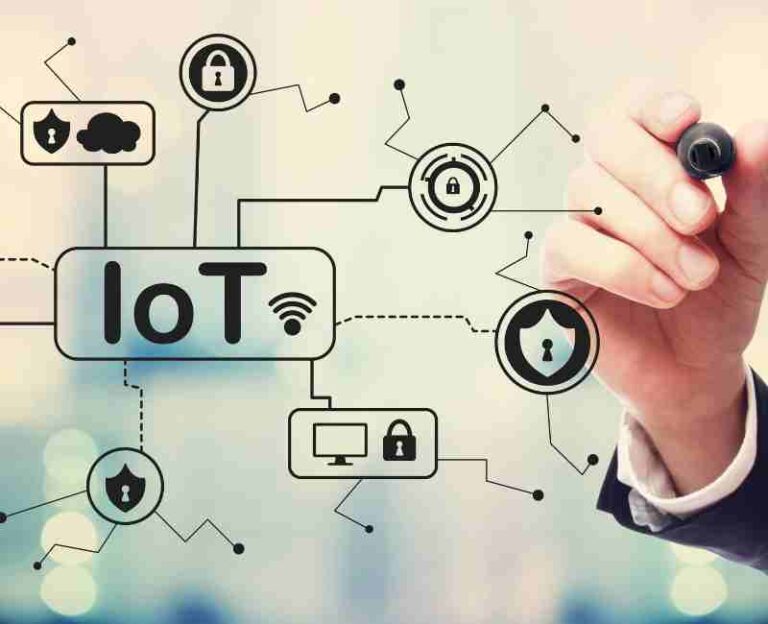Agriculture, a cornerstone of human civilization, has undergone significant transformations over the years. The current state of agriculture is characterized by unprecedented challenges, including environmental degradation, resource depletion, and the urgent need to feed a growing global population. Traditional farming practices, while essential for centuries, are now at a crossroads, demanding innovative solutions to ensure sustainability.
In this era of rapid technological advancement, technology plays a pivotal role in reshaping traditional farming practices. The integration of cutting-edge innovations has the potential to revolutionize the agricultural landscape, address critical issues, and pave the way for a more sustainable future. This transformative journey is particularly marked by the advent of artificial intelligence (AI) and machine learning (ML), which are poised to be crucial catalysts in ushering in a new era of sustainable agriculture.

Sustainable agriculture technologies
- Sustainable agriculture technologies
- The importance of water management for sustainable agriculture
- Environmental Impact and the Need for Sustainable Practices
- Technological Solutions for Sustainable Farming
- Discussion on Organic Farming, Crop Rotation, and Other Sustainable Techniques
- Insights into Growing Consumer Demand for Sustainable Food
- Mention of Vertical Farming and Its Relevance
- Conclusion
The emergence of sustainable agriculture technologies stands as a beacon of hope for farmers grappling with myriad challenges globally. These technologies offer a paradigm shift towards eco-friendly and resource-efficient farming practices. From precision agriculture to smart irrigation systems, the tools and methodologies encompass a spectrum of solutions aimed at mitigating the adverse impacts of conventional farming on the environment.
AI and ML: Shaping Sustainable Tech
Artificial intelligence and machine learning are indispensable components in this journey towards sustainable agriculture. These technologies empower farmers and stakeholders with valuable insights, predictive analytics, and data-driven decision-making capabilities. From optimizing crop yields to enhancing resource management, AI and ML are proving to be the driving forces behind a more resilient and sustainable agricultural sector.
The intersection of agriculture and technology
In the ever-evolving landscape of agriculture, the convergence of agriculture and technology has become a driving force behind sustainable farming practices. This section focuses on a key aspect of this intersection: Precision farming is a revolutionary approach to crop management that leverages cutting-edge technologies for optimal results.
Precision Farming: Enhancing Crop Management
Explanation of Precision Farming Technologies
Precision farming involves the use of advanced technologies to fine-tune and optimize various aspects of crop management. These technologies include GPS guidance systems, sensors, robotics, and data analytics. The aim is to move away from traditional, one-size-fits-all approaches to more precise and targeted interventions in farming.
Case Studies: Showcasing Successful Adoption
To understand the real-world impact of precision farming, let’s delve into case studies that highlight successful adoption and positive outcomes. Farms employing precision farming techniques have demonstrated improvements in crop yields, resource efficiency, and overall sustainability. These cases serve as beacons of inspiration for widespread adoption across the agricultural landscape.
Insights into Data Analytics and Sensors
An integral component of precision farming is the utilization of data analytics and sensors. These tools provide farmers with real-time information about soil conditions, weather patterns, and crop health. The integration of computer vision further enhances these insights, allowing for more accurate and timely decision-making in crop management.
United Nations Views on Precision Agriculture
Recognizing the transformative potential of precision agriculture, the United Nations emphasizes its importance for global food security. Precision farming not only contributes to increased productivity but also aligns with the sustainable development goals of minimizing environmental impact and ensuring food accessibility for a growing population.
Smart Irrigation Systems: Efficient Water Use
Smart irrigation systems represent a watershed moment in sustainable agriculture, significantly impacting water conservation and resource efficiency. This section provides an in-depth exploration of these systems, elucidating their contributions to efficient water use.
An Overview of Smart Irrigation Technologies
Smart irrigation technologies encompass a range of innovative tools and systems designed to optimize water usage in agriculture. These technologies leverage real-time data, weather forecasts, and soil moisture sensors to precisely deliver the right amount of water to crops. By automating and customizing irrigation processes, these systems aim to mitigate water waste and enhance overall efficiency.
Examples of Improved Irrigation Efficiency
To grasp the tangible benefits of smart irrigation, consider notable examples where these systems have led to significant improvements in irrigation efficiency. Farms utilizing smart irrigation experience reduced water consumption, increased crop yields, and improved overall farm productivity. These success stories underscore the transformative impact of adopting intelligent water management practices.
The importance of water management for sustainable agriculture
Efficient water management lies at the heart of sustainable agriculture, and smart irrigation systems play a pivotal role in achieving this goal. The discussion within this section emphasizes the critical importance of water conservation for long-term environmental sustainability. By incorporating digital tools and precision irrigation techniques, farmers can optimize water usage, ensuring a balance between resource efficiency and crop health.
Environmental Impact and the Need for Sustainable Practices
While addressing water management, it is crucial to underscore the environmental impact of traditional irrigation practices. The excessive use of water not only strains local water resources but also contributes to soil degradation and biodiversity loss. The imperative for adopting sustainable farming practices is highlighted, emphasizing the role of smart irrigation systems in mitigating environmental concerns associated with water resource management.
Technological Solutions for Sustainable Farming
The integration of cutting-edge technologies is reshaping traditional farming practices, ushering in a new era of sustainability. This section focuses on the transformative impact of connectivity in agriculture, exploring the role of the Internet of Things (IoT) in revolutionizing farm operations.
Exploration of Connectivity and IoT
Connectivity and IoT represent a paradigm shift in farm operations. The seamless exchange of data between devices and systems allows for real-time monitoring and analysis, optimizing various aspects of agriculture. This section delves into how connectivity is fundamentally changing the way farmers manage their operations, from crop monitoring to equipment automation.
The benefits of embracing connected systems in agriculture are manifold. Improved decision-making and operational efficiency top the list. With a network of interconnected devices providing data on soil health, weather conditions, and crop status, farmers can make informed decisions promptly. This not only enhances productivity but also contributes to resource conservation.
Examples of connected farm equipment
Illustrating the practical application of connectivity, this section showcases examples of connected farm equipment. From smart tractors and automated irrigation systems to drones and sensors, these technologies work in unison to streamline farming processes. These examples serve as tangible evidence of how connectivity is enhancing precision and productivity on modern farms.
Advanced Connectivity: Shaping the Future of Agriculture
As agriculture moves forward, advanced connectivity emerges as a cornerstone of its future. The ability to seamlessly connect diverse elements in the farming ecosystem, from machinery to crop monitoring systems, is paramount. This section emphasizes the vital role of advanced connectivity in shaping a more resilient and sustainable future for agriculture.
Sustainable Crop Practices: Balancing Yield and Health
In the pursuit of a more sustainable and environmentally conscious agriculture, the adoption of sustainable crop practices is pivotal. This section delves into the various eco-friendly farming techniques that not only promote crop health but also contribute to the broader goals of sustainability.
Examination of Eco-Friendly Farming Practices
The shift towards sustainable crop practices involves a critical examination of farming methods that minimize environmental impact. This includes exploring cultivation techniques that prioritize soil health, reduce the use of synthetic inputs, and promote biodiversity. The examination extends to practices that maintain a delicate balance between agricultural productivity and ecological well-being.
Discussion on Organic Farming, Crop Rotation, and Other Sustainable Techniques
Organic farming stands out as a key component of sustainable crop practices. The section engages in a detailed discussion on the principles and benefits of organic farming, emphasizing the elimination of synthetic pesticides and fertilizers. Additionally, the importance of crop rotation as a sustainable technique is explored, highlighting its role in preventing soil degradation and enhancing nutrient diversity.
Insights into Growing Consumer Demand for Sustainable Food
As consumers become increasingly conscious of their ecological footprint, there is a noticeable surge in the demand for sustainably produced food. This section provides valuable insights into the factors driving this demand. From concerns about personal health to a heightened awareness of environmental issues, consumers are seeking food produced through methods that align with sustainable crop practices.
Mention of Vertical Farming and Its Relevance
A notable innovation in sustainable agriculture, vertical farming, is brought into focus. This method involves cultivating crops in vertically stacked layers, often within controlled environments. The section explores the relevance of vertical farming in the context of sustainable agriculture, emphasizing its potential to maximize space utilization, reduce water consumption, and minimize transportation-related carbon emissions.
Challenges and Insights in Sustainable Agriculture Technologies
As we navigate the landscape of sustainable agriculture technologies, it becomes imperative to address the challenges hindering widespread adoption and gain insights that pave the way for a resilient and sustainable agricultural future.
Adoption Challenges: Bridging the Gap
Examination of Barriers
Examination of barriers is paramount to understanding the slow pace of sustainable technology adoption in agriculture. This section meticulously dissects challenges such as high initial costs, a lack of awareness, and the inertia associated with changing established farming practices. Identifying these barriers is the first step towards developing effective strategies for overcoming them.
Strategies for Overcoming Challenges
This section delves into strategies for overcoming challenges and promoting the adoption of sustainable technologies. From financial incentives to targeted education programs, the focus is on practical solutions that can bridge the gap between existing practices and the potential benefits of sustainable agricultural technologies. Collaborative efforts from government, industry, and academia play a crucial role in implementing these strategies.
Insights into Education and Awareness
Acknowledging the role of education and awareness is pivotal in fostering change. This section explores how knowledge dissemination about sustainable practices can contribute to a mindset shift among farmers. Insights into successful awareness campaigns and educational initiatives provide a roadmap for building a more informed and receptive agricultural community.
Reference to Deloitte Insights
Drawing on the wealth of knowledge from Deloitte Insights, this section provides a deeper understanding of the challenges faced by the agriculture industry. From supply chain disruptions to regulatory complexities, Deloitte’s insights offer a comprehensive view of the multifaceted challenges that sustainable agriculture technologies must navigate.
Exploration of Emerging Technologies
An in-depth exploration of emerging technologies is crucial to understanding the future trajectory of agriculture. This section highlights innovations such as AI-driven farming, blockchain applications, and advanced sensors that are set to redefine how we approach sustainable agriculture. Insights into these technologies lay the foundation for informed decision-making and proactive industry adaptation.
Insights into Ongoing Research and Innovations
Keeping abreast of ongoing research and innovations is key to staying at the forefront of sustainable agriculture. By delving into the latest studies and breakthroughs, this section provides valuable insights into the direction of research, potentially influencing future technologies and best practices.
Predictions on Farming Practices in the Next Decade
This section ventures into making predictions on the evolution of farming practices in the next decade. By considering current trends and emerging technologies, we can anticipate shifts in agricultural approaches, resource utilization, and the overall landscape of the industry.
Mention of the New Era of Sustainable Technology
The section concludes with a look at the new era of sustainable technology and its profound impact on the agriculture industry. As technological advancements continue to accelerate, this new era promises a more efficient, environmentally friendly, and sustainable future for agriculture.
Quick Tips
In the dynamic landscape of agriculture, incorporating sustainable technologies is not just a trend but a necessity for fostering long-term resilience and efficiency. Here are some quick tips for farmers to seamlessly integrate sustainable agriculture technologies into their practices:
- Regularly update yourself on the latest sustainable technologies.
- Participate in workshops, webinars, and conferences to enhance your knowledge base.
- Begin by implementing sustainable practices on a small scale.
- Gradually scale up based on the success and feasibility of the initial trials.
- Explore precision farming tools like GPS-guided tractors and sensors.
- Optimize resource usage by precisely targeting inputs, reducing waste.
- Leverage data analytics to make informed decisions about crop management.
- Utilize insights to optimize planting, irrigation, and harvesting schedules.
- Integrate AI and machine learning algorithms for predictive analytics.
- Enhance efficiency by predicting disease outbreaks, optimizing yields, and minimizing losses.
- Implement drones for aerial monitoring of crop health.
- Use drones to survey large areas quickly, identifying potential issues in real time.
- Invest in smart irrigation systems to optimize water usage.
- Monitor soil moisture levels and weather patterns for precise irrigation scheduling.
- Explore the potential of vertical farming for space-efficient and resource-saving cultivation.
- Vertical farming is particularly beneficial in urban areas with limited space.
- Partner with agricultural tech providers for tailored solutions.
- Seek guidance on implementing and optimizing technologies for your specific farming needs.
- Regularly assess the performance of implemented technologies.
- Adjust strategies based on feedback and evolving technological advancements.
Conclusion
In conclusion, the transformative role of technology in sustainable agriculture is undeniable. From precision farming to smart irrigation and connectivity, technology has the potential to revolutionize farming practices for a more sustainable future.
It’s imperative to acknowledge our collective responsibility to promote eco-friendly farming practices globally. Governments, industries, and consumers must collaborate to support and incentivize sustainable agriculture initiatives.
Finally, the mention of the audit role emphasizes the need for accountability in ensuring the sustainability and efficiency of tech solutions. Regular audits can assess the impact of implemented technologies, guide continuous improvement, and align agricultural practices with long-term environmental and economic sustainability. Together, through technology and collective effort, we can cultivate a future where agriculture thrives in harmony with the planet.
More Post






